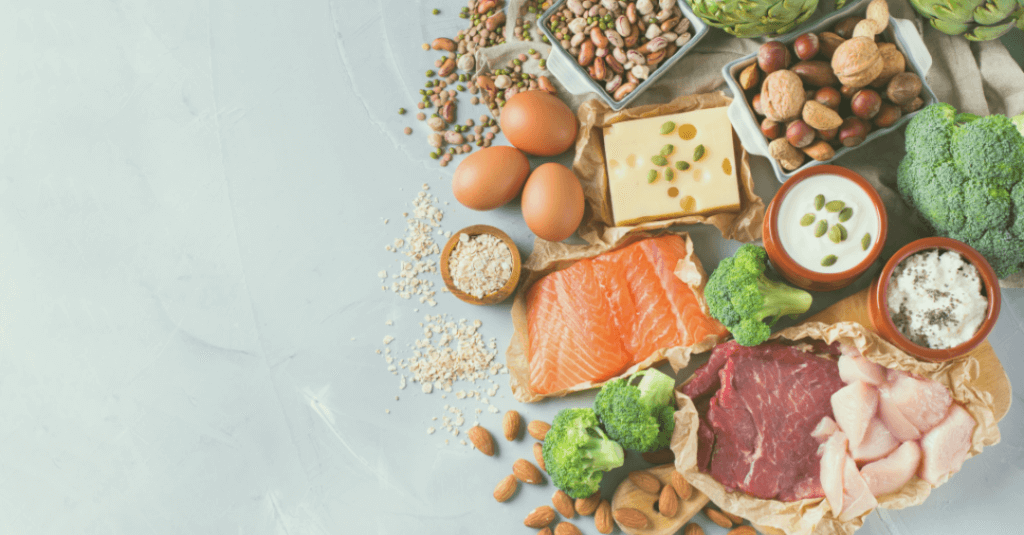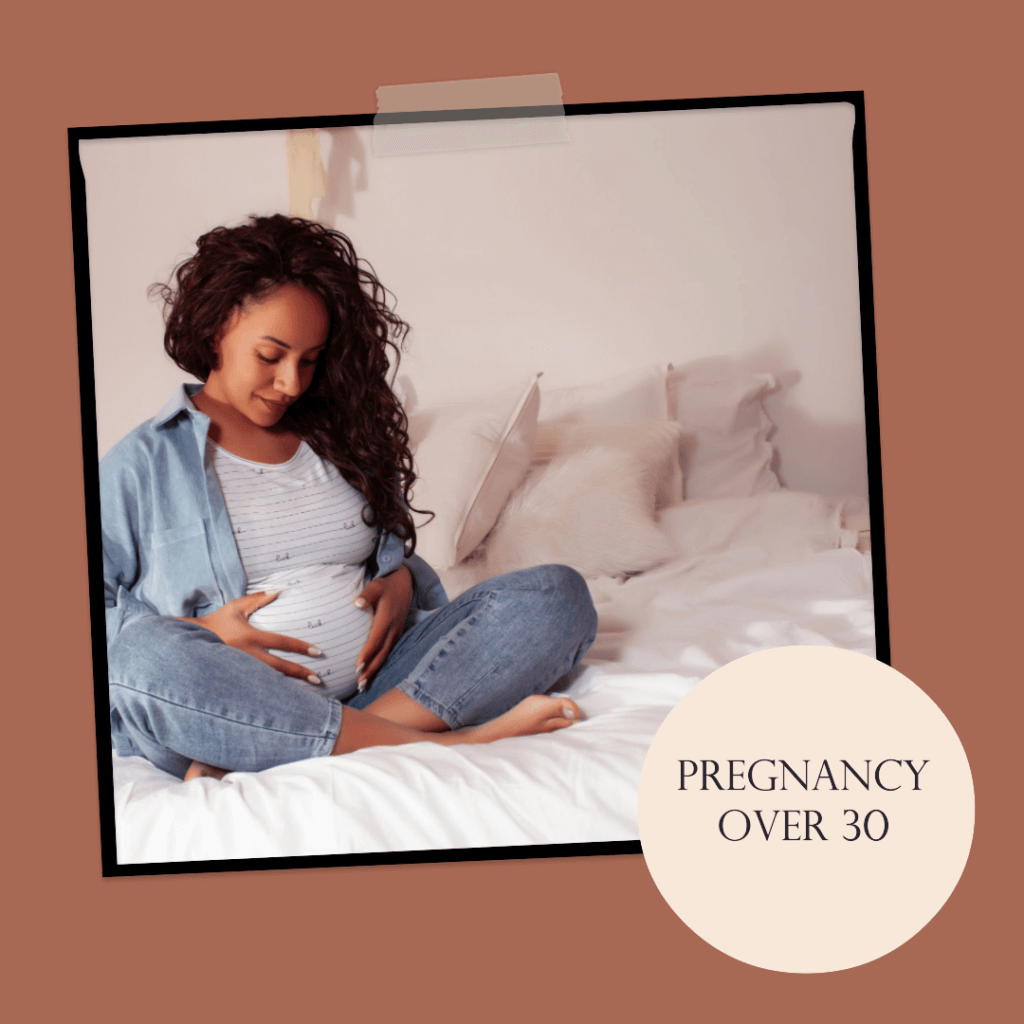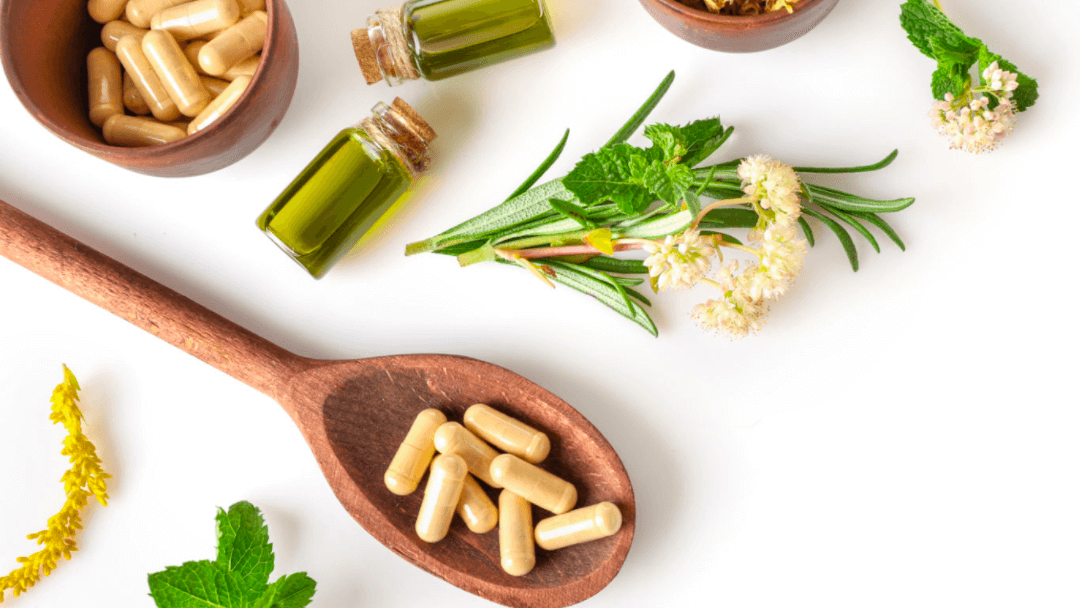Getting pregnant in your 30s
How can I increase my fertility in my 30s?

If you are in your 30s and want to increase your fertility, here are some tips that might help you:
- Eat a balanced diet that includes healthy protein, fruits, vegetables, whole grains, and omega-3 fatty acids. These nutrients can support your reproductive health and prevent weight fluctuations that can affect your ovulation.
- Limit your intake of alcohol and caffeine, as they can reduce your chances of getting pregnant and harm the quality of your eggs and sperm. Aim for no more than 1-2 drinks a week and 200 mg of caffeine a day.
- Quit smoking or avoid exposure to secondhand smoke, as it can damage your DNA and lower your fertility. Smoking can also increase the risk of miscarriage, ectopic pregnancy, and premature birth.
- Take supplements that contain antioxidants, such as zinc and folate, which can protect your egg and sperm cells from free radical damage. You can also get antioxidants from foods like walnuts, berries, and dark chocolate.
- Get enough sleep and manage your stress levels, as they can affect your hormones and ovulation. Try to get at least 7-8 hours of sleep every night and practice relaxation techniques like yoga, meditation, or deep breathing.
- Track your cycle and have sex during your fertile window, which is usually 5 days before and on the day of ovulation. You can use an ovulation predictor kit, a basal body temperature thermometer, or a fertility app to help you identify your most fertile days.
- Get your partner on board with these lifestyle changes, as his fertility also matters. Encourage him to eat well, exercise regularly, avoid smoking and drinking, and wear loose-fitting underwear to keep his sperm healthy and motile.
Eat more fiber
You know what they say: an apple a day keeps the doctor away. Well, maybe not literally, but there’s some truth to that old saying. Apples are a great source of fiber, which is essential for your digestive health and overall well-being. Fiber helps you feel full longer, lowers your cholesterol, and prevents constipation. Plus, it can reduce your risk of diabetes, heart disease, and some cancers. So how much fiber do you need? The recommended amount is 25 to 38 grams per day for adults, depending on your age and gender. But most Americans only get about 15 grams per day, which is way too low. That’s why you should eat more fiber-rich foods like fruits, vegetables, whole grains, beans, nuts, and seeds. They’re not only good for you, but also delicious and satisfying. Trust me, your body will thank you for it.

Fertility in your 30s: the biology of fertility
Fertility in your 30s: the biology of fertility
If you’re thinking about having a baby in your 30s, you might be wondering how your age affects your fertility. The truth is, fertility is not a fixed number that stays the same throughout your life. It changes depending on many factors, such as your health, lifestyle, and genetics.
One of the most important factors that affects fertility is the number and quality of your eggs. Women are born with all the eggs they will ever have, and they lose them gradually as they age. By the time you reach your 30s, you have fewer eggs left than you did in your 20s, and some of them may have chromosomal abnormalities that can cause problems with conception or pregnancy.
But don’t worry, it’s not all doom and gloom. You can still get pregnant in your 30s, and many women do. In fact, more women are having babies in their 30s than ever before, thanks to advances in reproductive technology and social changes. According to some studies, women in their early 30s have about a 20% chance of getting pregnant each month, which is only slightly lower than women in their 20s.
Of course, everyone’s fertility is different, and there are many things you can do to boost your chances of getting pregnant in your 30s. Some of them include eating a healthy diet, exercising regularly, avoiding smoking and alcohol, managing stress, and getting regular check-ups with your doctor. You may also want to track your ovulation and have sex during your fertile window, which is usually around 14 days before your next period.
If you have trouble getting pregnant after trying for a year (or six months if you’re over 35), you may want to see a fertility specialist who can help you explore your options. There are many treatments available for infertility, such as medication, surgery, intrauterine insemination (IUI), or in vitro fertilization (IVF). These treatments can help you overcome various causes of infertility, such as ovulation problems, blocked tubes, endometriosis, low sperm count, or unexplained infertility.
Getting pregnant in your 30s may not be as easy as it was in your 20s, but it’s definitely possible. With some planning, preparation, and patience, you can achieve your dream of having a baby.
Eat less refined carbs
If you’re trying to get pregnant, you might want to cut down on the white bread, pasta and rice. These are refined carbs that can mess with your blood sugar and hormones. Studies have shown that eating too many refined carbs can lower your fertility and make it harder to conceive. For example, one study found that women who ate more than one serving of white bread per day had a 20% lower chance of ovulating than those who ate less. Another study found that men who ate more refined carbs had poorer sperm quality and lower testosterone levels. Instead, opt for whole grains, fruits and veggies that are rich in fiber and nutrients. These will help you balance your hormones and improve your chances of having a baby. Some good choices are oats, quinoa, berries, leafy greens and sweet potatoes.

Eat a bigger breakfast
If you are trying to get pregnant fast and naturally, one of the easiest things you can do is to eat a bigger breakfast. Studies have shown that eating a substantial quantity of food in breakfast enhances the hormonal effects of PCOS (polycystic ovary syndrome), which is a common cause of infertility. Eating a bigger breakfast can also increase your chances of ovulation by 30%. So, what should you eat for breakfast? Try to choose foods that are high in protein, such as Greek yogurt or eggs, and carbs, such as oatmeal. These foods will give you energy and nourish your body for pregnancy. Avoid trans fats, which can negatively affect your fertility, and opt for healthy fats instead. Eating a bigger breakfast is a simple and delicious way to boost your fertility and get pregnant faster.
Eat foods rich in antioxidants
If you want to boost your health and well-being, one of the best things you can do is eat foods rich in antioxidants. Antioxidants are substances that protect your cells from damage caused by free radicals, which are unstable molecules that can cause inflammation, aging, and disease. Antioxidants are found in many fruits, vegetables, nuts, seeds, spices, and herbs. Some of the most antioxidant-rich foods include berries, dark chocolate, green tea, kale, garlic, and turmeric. By adding these foods to your diet, you can enjoy their delicious flavors and benefits. Antioxidants can help lower your blood pressure, improve your skin, enhance your immune system, and prevent or slow down the progression of some cancers. So go ahead and treat yourself to some antioxidant-rich foods today. You’ll be glad you did!

Check those iron levels
One of the factors that can affect your fertility and the health of your pregnancy is your iron level. Iron is an essential mineral that helps your body produce red blood cells and hemoglobin, which carry oxygen to your tissues and organs. Low iron levels can cause anemia, which can make you feel tired, weak, and dizzy. Anemia can also increase the risk of complications during pregnancy, such as preterm birth, low birth weight, and postpartum hemorrhage. Therefore, it is important to check your iron levels before you try to conceive and during your pregnancy. You can do this by asking your doctor for a blood test or using a home iron test kit. If your iron levels are low, you may need to take iron supplements or eat more iron-rich foods, such as meat, poultry, fish, eggs, beans, lentils, nuts, seeds, and leafy green vegetables. By checking and improving your iron levels, you can increase the chances of having a healthy pregnancy and a healthy baby.
Avoid excessive alcohol consumption
One of the factors that can affect your fertility and the health of your pregnancy is your iron level. Iron is an essential mineral that helps your body produce red blood cells and hemoglobin, which carry oxygen to your tissues and organs. Low iron levels can cause anemia, which can make you feel tired, weak, and dizzy. Anemia can also increase the risk of complications during pregnancy, such as preterm birth, low birth weight, and postpartum hemorrhage. Therefore, it is important to check your iron levels before you try to conceive and during your pregnancy. You can do this by asking your doctor for a blood test or using a home iron test kit. If your iron levels are low, you may need to take iron supplements or eat more iron-rich foods, such as meat, poultry, fish, eggs, beans, lentils, nuts, seeds, and leafy green vegetables. By checking and improving your iron levels, you can increase the chances of having a healthy pregnancy and a healthy baby.

Swap protein sources
Swapping protein sources is a way to diversify your diet and get different nutrients from plant-based foods. Some examples of vegetable protein sources are beans, nuts, seeds, tofu, tempeh, quinoa and lentils. These foods can replace animal proteins such as meat, fish, eggs and dairy products in various dishes and recipes. Swapping protein sources may have some health benefits, such as reducing the risk of infertility, lowering cholesterol and blood pressure, and supporting weight management. However, it is important to ensure that you are getting enough protein and other essential nutrients from your diet, especially if you are vegan or vegetarian. You may need to supplement with vitamin B12, iron and omega-3s, or eat fortified foods that contain these nutrients. Swapping protein sources can be a fun and creative way to enjoy different cuisines and flavors, while also improving your health and well-being.
How to boost fertility naturally?
If you are trying to conceive, you might be wondering how to boost your fertility naturally. There are many factors that can affect your chances of getting pregnant, such as your age, health, lifestyle, and diet. Here are some tips to improve your fertility and increase your odds of having a baby.
- Eat foods rich in antioxidants. Antioxidants are substances that protect your cells from damage caused by free radicals, which can harm your egg and sperm quality. Some examples of antioxidant-rich foods are fruits, vegetables, nuts, seeds, and whole grains. Folate and zinc are especially important for fertility, as they help with DNA synthesis and cell division.
- Eat a balanced breakfast. A study found that eating a larger breakfast may help women with polycystic ovary syndrome (PCOS), a common cause of infertility, by lowering their insulin and testosterone levels and improving their ovulation. However, make sure to balance your calorie intake throughout the day and avoid overeating or gaining weight.
- Avoid trans fats and refined carbs. Trans fats are unhealthy fats that can increase your risk of ovulatory infertility by affecting your insulin sensitivity. They are often found in processed foods, such as margarine, baked goods, fried foods, and snacks. Refined carbs are simple sugars that can also spike your blood sugar and insulin levels and impair your hormonal balance. Examples of refined carbs are white bread, pasta, rice, cakes, cookies, and candy.
- Choose healthy fats and proteins. Healthy fats, such as omega-3 fatty acids, can help reduce inflammation and improve blood flow to the reproductive organs. They are found in oily fish, such as salmon, sardines, mackerel, and herring, as well as flaxseeds, walnuts, chia seeds, and avocados. Healthy proteins, such as lean meat, poultry, eggs, dairy products, beans, lentils, tofu, and nuts, can provide essential amino acids for your body to make hormones and enzymes involved in fertility.
- Eat more fiber. Fiber can help regulate your blood sugar and insulin levels and remove excess hormones from your body. Fiber-rich foods include fruits, vegetables, oats, barley, quinoa, beans, lentils, and nuts.
- Try some bee products. Bee pollen can improve sperm quality and fertility in men by enhancing their vitality and motility. Bee propolis can help women with endometriosis get pregnant by reducing inflammation and preventing adhesions in the pelvic area. Royal jelly is a substance produced by worker bees to feed the queen bee. It is rich in lipids, iron, calcium,
fatty acids, vitamins, and amino acids that can boost your fertility by nourishing your eggs and improving your hormonal balance.

Get active
Getting active is one of the best ways to improve your physical and mental health. Physical activity can help you prevent chronic diseases, manage your weight, boost your mood, and enhance your cognitive skills. However, many people struggle to find the time, motivation, or resources to be more active in their daily lives. That’s why we have compiled some tips and strategies to help you get started and stay on track with your fitness goals.
First, you need to set a realistic and specific goal for yourself. For example, instead of saying “I want to exercise more”, you could say “I want to walk for 30 minutes every day”. This way, you can measure your progress and adjust your plan accordingly. You can also use a fitness tracker or an app to monitor your steps, calories, heart rate, and other indicators of your activity level.
Second, you need to find an activity that you enjoy and that suits your lifestyle. There are many options to choose from, such as jogging, cycling, swimming, dancing, yoga, or martial arts. You can also try different types of workouts, such as high-intensity interval training (HIIT), strength training, or flexibility exercises. The key is to find something that makes you feel good and that you can stick with for the long term.
Third, you need to make physical activity a habit and a priority in your schedule. You can do this by setting a regular time and place for your exercise sessions, and by planning ahead for any obstacles or distractions that might interfere with your routine. You can also enlist the support of your family, friends, or coworkers to join you in your activities or to hold you accountable for your goals. Alternatively, you can join a fitness class or a club to meet new people who share your interests and who can motivate you to keep going.
Getting active is not only beneficial for your health, but also for your happiness and well-being. By following these tips and strategies, you can make physical activity a part of your life and enjoy the rewards of a healthier and fitter body and mind.
Aim for a healthy weight loss plan
If you are looking for a way to lose weight, you may be tempted by quick fixes or fad diets that promise fast results. However, these methods are often unhealthy and unsustainable, and can lead to yo-yo dieting, nutrient deficiencies, and other health problems. Instead of following a restrictive or extreme diet, you should aim for a healthy weight loss plan that is based on balanced nutrition, physical activity, and behavioral changes. A healthy weight loss plan is one that helps you lose weight gradually and safely, at a rate of about 1 to 2 pounds per week. It also helps you maintain your weight loss in the long term, by teaching you how to adopt healthier habits and cope with challenges. A healthy weight loss plan should include the following elements:
- A realistic and personalized goal. You should set a goal that is achievable and suitable for your body type, age, gender, and health status. You can use tools such as the body mass index (BMI) or waist circumference to assess your weight status and health risks. You can also consult with your doctor or a registered dietitian for guidance.
- A balanced and varied diet. You should eat a variety of foods from all the food groups, including fruits, vegetables, whole grains, lean protein, low-fat dairy, and healthy fats. You should limit your intake of added sugars, saturated fats, trans fats, sodium, and alcohol. You should also pay attention to your portion sizes and calorie intake, and avoid skipping meals or starving yourself.
- A regular and moderate physical activity. You should aim for at least 150 minutes of moderate-intensity aerobic activity per week, such as brisk walking, cycling, or swimming. You can also include some strength training exercises to build muscle and bone mass, and improve your metabolism. You should choose activities that you enjoy and that fit your schedule and fitness level. You should also avoid being sedentary and increase your daily movement by taking the stairs, parking farther away, or walking during breaks.
- A positive and supportive environment. You should surround yourself with people who encourage and motivate you to achieve your weight loss goals. You can join a support group, enlist a buddy, or seek professional help if needed. You should also avoid negative influences that may sabotage your efforts, such as peer pressure, emotional eating, or unrealistic expectations. You should celebrate your successes and reward yourself with non-food treats, such as a massage, a movie, or a new outfit.
- A flexible and adaptable attitude. You should understand that weight loss is not a linear process and that there may be ups and downs along the way. You should not let minor setbacks or plateaus discourage you or make you give up. Instead, you should learn from your mistakes and adjust your plan accordingly. You should also be open to trying new things and experimenting with different strategies that may work better for you.
By following these guidelines, you can achieve a healthy weight loss plan that will benefit your physical and mental health in the long run.

Choose high fat dairy products
Choosing high-fat dairy products may have some benefits for your health, but it also comes with some risks. High-fat dairy products, such as butter, heavy cream, and cheese, are rich in saturated fat, which can raise your cholesterol levels and increase your risk of heart disease and stroke. However, some studies have suggested that high-fat dairy products may not have the same negative effects as other sources of saturated fat, such as red meat. High-fat dairy products also contain important nutrients, such as calcium, vitamin B12, phosphorus, and selenium, as well as protein and antioxidants. Therefore, you may want to include some high-fat dairy products in your diet, but in moderation and as part of a balanced and varied diet. You should also choose high-quality dairy products that are organic and grass-fed, if possible, to avoid hormones and antibiotics that may be present in conventional dairy products.
Avoid trans fats
Trans fats are a type of unsaturated fat that can raise your cholesterol levels and increase your risk of heart disease. They are often found in processed foods, such as pastries, cakes, biscuits, margarines, and fried foods. For example, a doughnut can contain up to 5 grams of trans fat, which is more than twice the recommended daily limit. A packet of microwave popcorn can have up to 3 grams of trans fat, and a slice of pizza can have up to 2 grams. To avoid trans fats, you should read the nutrition labels carefully and look for ingredients that say “partially hydrogenated oils” or “hydrogenated oils”. These are sources of trans fats that you should limit or avoid. You should also choose foods that are low in saturated fat and high in monounsaturated and polyunsaturated fats, such as olive oil, nuts, seeds, fish, and avocados. These fats can help lower your cholesterol and improve your heart health. By avoiding trans fats, you can protect yourself from many chronic diseases and enjoy a healthier diet.

Is it harder to get pregnant in your 30s?
Is it harder to get pregnant in your 30s?
Many women wonder if getting pregnant in their 30s is more difficult than in their 20s. The answer is not straightforward, as fertility depends on several factors, such as age, egg quality, health, and lifestyle. However, some general trends can be observed.
According to research, fertility gradually begins to decline at around age 32, and more rapidly after age 35 . This is because women are born with a finite number of eggs, which decrease in quantity and quality over time . At age 25, the average woman has a 25 percent chance of getting pregnant each month. By age 30, that number goes down to 20 percent. By age 35, it drops to 12 percent.
Getting pregnant in your 30s also carries some risks that are higher than in your 20s. These include miscarriage, chromosomal abnormalities, pregnancy complications, and delivery problems . However, most women in their 30s can still have a healthy pregnancy and baby with proper care and screening.
Getting pregnant in your 30s also has some advantages over getting pregnant earlier or later in life. Some of these are:
- You may be more financially stable and secure in your career.
- You may have more life experience and maturity to handle the challenges of parenthood.
- You may have a stronger relationship with your partner and a supportive network of family and friends.
- You may have a better sense of yourself and your goals.
If you are planning to get pregnant in your 30s, there are some steps you can take to maximize your fertility and have a healthy pregnancy. These include:
- See your doctor for a preconception checkup and discuss your medical history, family history, medications, vaccinations, and supplements.
- Take prenatal vitamins that contain folic acid to prevent neural tube defects.
- Maintain a healthy weight and eat a balanced diet that includes fruits, vegetables, whole grains, lean protein, and healthy fats.
- Avoid smoking, alcohol, caffeine, drugs, and environmental toxins that can harm your fertility and your baby’s development.
- Exercise regularly and moderately to improve blood circulation, reduce stress, and prevent gestational diabetes.
- Track your ovulation and have sex during your fertile window, which is usually five days before and one day after ovulation.
- Reduce stress and practice relaxation techniques such as yoga, meditation, or breathing exercises.
- If you are over 35 or have a history of infertility or miscarriage, see a fertility specialist if you have not conceived after six months of trying.
Getting pregnant in your 30s is possible for most women with proper care and preparation. However, it is important to be aware of the potential challenges and risks that come with it. By consulting your doctor and following healthy lifestyle habits, you can increase your chances of having a successful pregnancy and a healthy baby.

Take time to relax
Stress can have a negative impact on your fertility and well-being. When you are stressed, your body releases hormones that can interfere with your ovulation and implantation. Stress can also affect your mood, sleep, appetite, and libido. Therefore, it is important to take time to relax and cope with stress in healthy ways. Some relaxation techniques that may help you include:
- Deep breathing: Breathe slowly and deeply from your abdomen, inhaling through your nose and exhaling through your mouth. Repeat this for several minutes until you feel calm.
- Meditation: Sit comfortably in a quiet place and focus on your breathing, a word, a sound, or an image. Let go of any distracting thoughts and feelings and just be present in the moment.
- Yoga: Yoga is a form of physical exercise that combines breathing, movement, and posture. It can help you stretch your muscles, improve your balance, and calm your mind.
- Massage: Massage can help you release tension and improve blood circulation. You can massage yourself or ask your partner or a professional therapist to do it for you.
- Aromatherapy: Aromatherapy uses essential oils from plants to stimulate your senses and enhance your mood. You can use a diffuser, a spray, a candle, or a bath to enjoy the benefits of aromatherapy.
- Music: Music can soothe your nerves and lift your spirits. You can listen to music that you like or try some relaxing sounds such as nature sounds, classical music, or ambient music.
- Hobbies: Hobbies are activities that you enjoy doing for fun and pleasure. They can help you express yourself, learn new skills, and connect with others. You can choose any hobby that suits your interests and abilities, such as reading, writing, painting, gardening, cooking, or playing games.
Taking time to relax can help you increase your chances of pregnancy by reducing stress and improving your overall health and happiness. Try to incorporate some relaxation techniques into your daily routine and make them a part of your lifestyle. Remember that you are not alone in this journey and that you deserve to be happy and healthy.
Why more women are getting pregnant in their 30s?
Why more women are getting pregnant in their 30s?
There are many reasons why more women are choosing to have children in their 30s than before. Some of the main factors are:
- Financial stability. Many women in their 30s have established careers and savings, which can help them afford the cost of having a baby and raising a child. They may also have more access to benefits such as paid maternity leave and health insurance.
- Health awareness. Women in their 30s are more likely to be aware of their health and fertility, and take steps to improve them. They may seek regular check-ups, eat a balanced diet, exercise regularly, and avoid smoking and alcohol. They may also use reliable birth control methods until they are ready to conceive.
- Social norms. Women in their 30s may face less pressure from family and society to have children at a younger age. They may also have more support from their peers who are having children around the same time. They may feel more confident and comfortable in their own skin, and have more life experience and maturity to handle parenthood.
- Assisted reproductive technologies (ART). Women in their 30s have more options to overcome fertility challenges with the help of ART, such as in vitro fertilization (IVF), egg freezing, donor eggs, or surrogacy. These technologies can increase the chances of having a healthy pregnancy and baby.
However, getting pregnant in your 30s also comes with some risks and challenges, such as:
- Declining fertility. Women’s fertility starts to decline gradually after age 30, and more rapidly after age 35. This means it may take longer to get pregnant, or require more cycles of ART. The quality and quantity of eggs also decrease with age, which can affect the success of ART.
- Higher risk of complications. Women in their 30s have a higher risk of developing gestational diabetes, high blood pressure, preeclampsia, placenta previa, or placental abruption during pregnancy. These conditions can affect the health of both the mother and the baby, and may require closer monitoring or early delivery.
- Higher risk of chromosomal abnormalities. Women in their 30s have a higher risk of having a baby with a chromosomal condition, such as Down syndrome. The risk increases with age, from about 1 in 1,000 at age 30 to about 1 in 100 at age 40. Prenatal screening and diagnostic tests can help detect these conditions early.
- Higher risk of miscarriage or stillbirth. Women in their 30s have a higher risk of losing a pregnancy due to chromosomal abnormalities or other factors. The risk of miscarriage is about 15% at age 30, and about 25% at age 40. The risk of stillbirth is about 1 in 200 at age 35, and about 1 in 100 at age 40.
Therefore, women who want to get pregnant in their 30s should consult their health care providers before trying to conceive, and follow their advice on how to boost their fertility and have a healthy pregnancy.

Add in a multivitamin
If you are trying to conceive, you may want to consider adding a multivitamin to your daily routine. A multivitamin can provide you with essential nutrients that may boost your fertility and support a healthy pregnancy. Some of the vitamins and minerals that are important for reproductive health include folic acid, iron, zinc, vitamin C, vitamin D, vitamin E, and B vitamins. These nutrients can help regulate your hormones, improve your egg quality, increase your cervical mucus, and prevent birth defects. However, not all multivitamins are created equal. You should look for one that is specially formulated for women who are planning to get pregnant or who are already pregnant. You should also consult your doctor before taking any supplements to make sure they are safe and appropriate for you. A multivitamin is not a substitute for a balanced diet and a healthy lifestyle. You should still eat a variety of foods that are rich in antioxidants, fiber, protein, and healthy fats. You should also avoid smoking, alcohol, caffeine, and stress as much as possible. These factors can negatively affect your fertility and your baby’s development. A multivitamin is just one of the ways you can increase your chance of pregnancy. By taking care of yourself and following your doctor’s advice, you can improve your odds of having a successful conception and a healthy baby.
Takeaway
Being aware of your reproductive health and making healthy lifestyle choices can help you boost your fertility in your 30s. Some of the factors that can affect your fertility include your weight, diet, exercise, sleep, stress, alcohol, caffeine, and smoking. You may also want to track your cycle and take prenatal vitamins to optimize your chances of conceiving. If you have any medical or genetic issues that could impair your fertility, you should consult a doctor or a fertility specialist. While your fertility may decline after 35, it does not mean you cannot have a healthy pregnancy and a baby. Every woman is different and has a personal fertility timeline that may vary depending on her health and history.

Cut the caffeine
If you are over 30 and trying to conceive, you may want to consider reducing your caffeine intake. Caffeine is a stimulant that can affect your hormonal balance, blood flow, and sleep quality, all of which are important factors for fertility. Studies have shown that high caffeine consumption can increase the risk of miscarriage, reduce the chances of implantation, and lower the quality and quantity of eggs and sperm. While there is no definitive answer on how much caffeine is safe for conception, some experts recommend limiting it to 200 mg per day, which is equivalent to about two cups of coffee. Alternatively, you can switch to decaffeinated or herbal drinks, or drink more water to stay hydrated. Cutting down on caffeine may not only improve your chances of conceiving, but also benefit your overall health and well-being.
Cut down on carbs if you have PCOS
Polycystic ovary syndrome (PCOS) is a hormonal disorder that affects women of reproductive age. It can cause irregular periods, acne, excess hair growth, and infertility. One of the factors that can worsen PCOS symptoms is insulin resistance, which means that your body does not use insulin effectively to regulate blood sugar levels. Insulin resistance can lead to weight gain, diabetes, and cardiovascular problems.
One of the ways to improve insulin sensitivity and reduce PCOS symptoms is to cut down on carbs, especially refined and processed ones. Carbs are the main source of glucose in your diet, and when you eat too many of them, your blood sugar levels spike and your pancreas has to produce more insulin to bring them down. This can cause your cells to become less responsive to insulin over time, and also increase the production of male hormones called androgens, which can worsen PCOS symptoms.
By cutting down on carbs, you can lower your blood sugar and insulin levels, and balance your hormones. This can help you regulate your menstrual cycle, improve your skin and hair quality, and increase your chances of getting pregnant. Cutting down on carbs does not mean that you have to eliminate them completely from your diet. You can still enjoy healthy sources of carbs such as fruits, vegetables, whole grains, legumes, and dairy products. However, you should limit or avoid foods that are high in added sugars, white flour, white rice, potatoes, corn syrup, and other refined or processed carbs. These foods can cause inflammation and oxidative stress in your body, which can also worsen PCOS symptoms.
Cutting down on carbs is one of the lifestyle changes that you can make to manage PCOS better. However, it is not a cure for PCOS, and it may not work for everyone. You should consult with your doctor before making any dietary changes, especially if you have any medical conditions or take any medications. Your doctor can help you determine the best diet plan for your individual needs and goals.

Will vitamins increase fertility?
Will vitamins increase fertility? This is a question that many people who are trying to conceive may wonder. The answer is not simple, as different vitamins may have different impacts on fertility for both men and women. However, some studies have indicated that certain vitamins may play a role in supporting reproductive health and improving the chances of conception. Some of these vitamins include vitamin D, folic acid, zinc, omega-3 fatty acids, vitamin E, and coenzyme Q10. These vitamins may help with various aspects of fertility, such as ovulation, egg quality, sperm count, sperm motility, embryo quality, and implantation. However, more research is needed to confirm the optimal dosage and effectiveness of these vitamins for fertility. Therefore, it is advisable to consult with a healthcare provider before taking any supplements to boost fertility.
Advantages of getting pregnant in your 30s
Many women choose to delay pregnancy until their 30s for various reasons, such as career, education, or personal preferences. While there are some risks associated with getting pregnant later in life, there are also some benefits that should not be overlooked. Here are some of the advantages of getting pregnant in your 30s:
- You may be more financially stable and have more resources to support your child. You may have a higher income, more savings, or a better insurance plan than you did in your 20s. You may also have a more established career and a more flexible work schedule that allows you to balance your professional and personal life.
- You may be more emotionally mature and ready for parenthood. You may have a clearer sense of who you are and what you want from life. You may have more experience in relationships and communication skills. You may also have a stronger support network of family and friends who can help you during pregnancy and after birth.
- You may have a healthier lifestyle and habits that benefit your pregnancy. You may have quit smoking, drinking, or using drugs. You may have a better diet and exercise routine that keeps you fit and strong. You may also have more knowledge and awareness of your health and wellness, and seek regular prenatal care and screenings.
- You may have a lower risk of some pregnancy complications, such as preterm birth, low birth weight, or birth defects. Some studies have suggested that women in their 30s have lower rates of these problems than women in their 20s or 40s. This may be due to a combination of factors, such as genetic diversity, hormonal balance, or environmental exposure.
- You may have a more positive attitude and outlook on pregnancy and motherhood. You may feel more confident, optimistic, and grateful for the opportunity to have a child. You may also appreciate the joys and challenges of raising a child more than you would have in your younger years.




